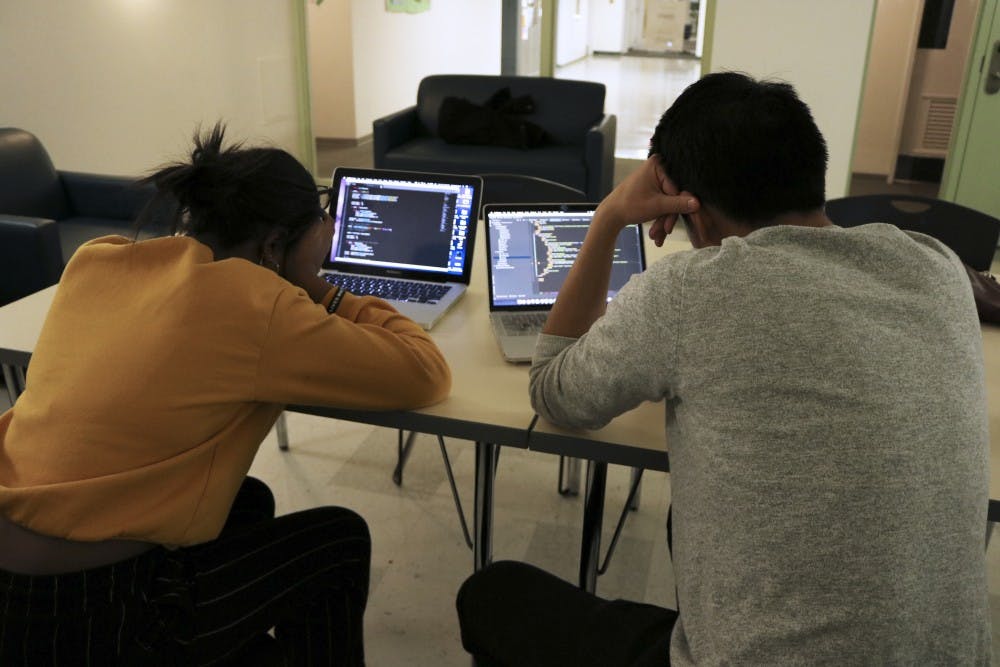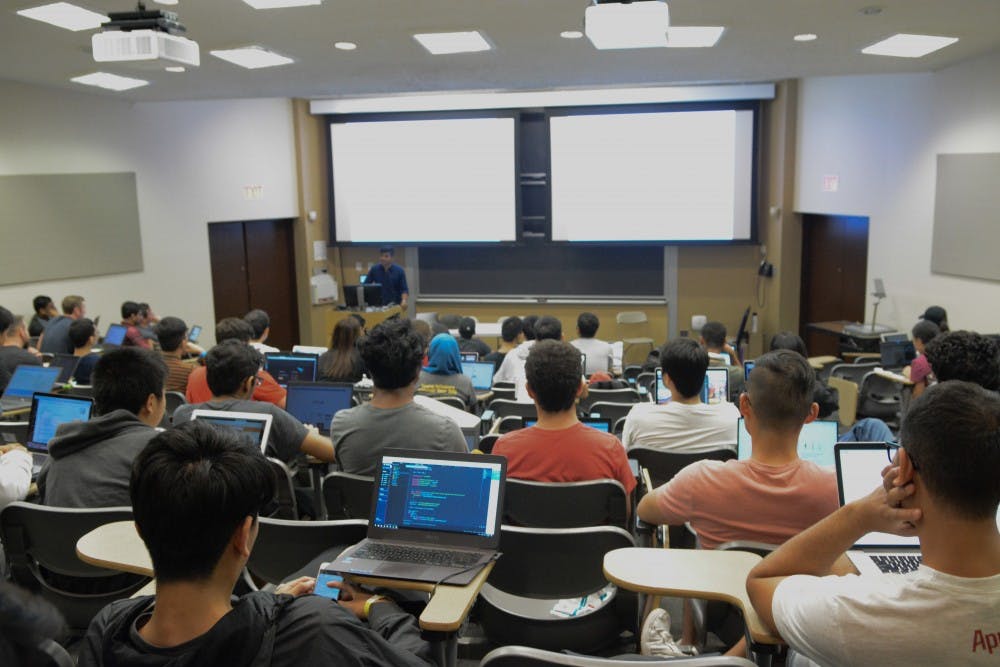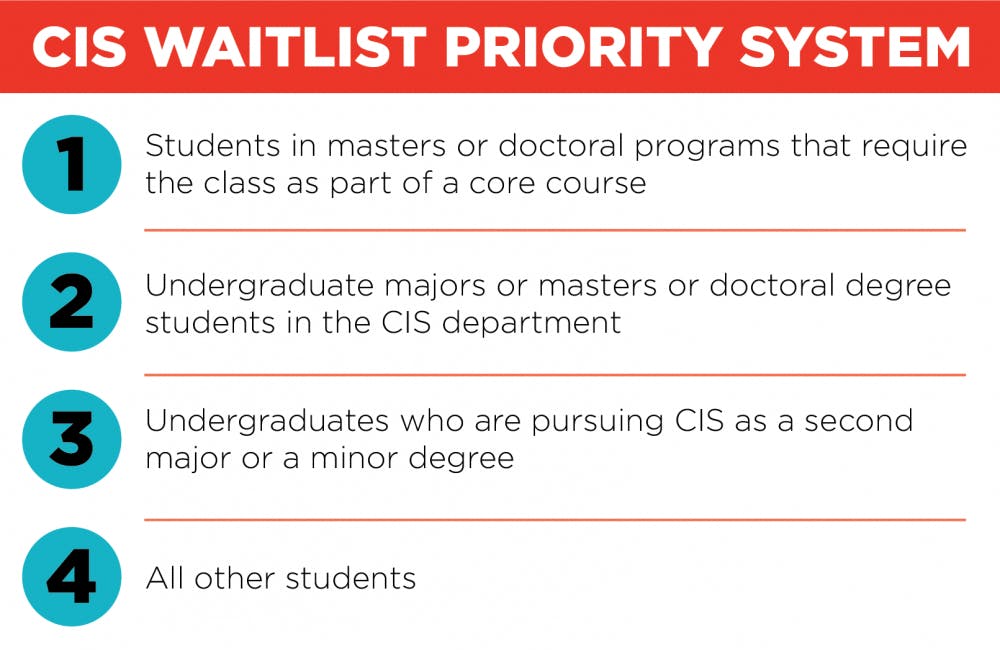
At Penn, the number of CIS majors has risen from 400 in 2015 to about 1,000 in December 2018.
Credit: Biruk TibebeFor students aiming to gain entrance into introductory Computer and Information Science courses, registering for classes has long been a struggle. In response to the recent spike in popularity of the major, the CIS Department has instituted changes to alleviate the surging student demand and overwhelming number of waitlisted students.
This semester, the CIS Department expanded enrollment caps and offered additional introductory courses. The department is also offering more CIS courses over the summer and attempting to hire more faculty to offset the growing demand for popular introductory and machine learning courses.
This spring, the CIS Department added 20 new seats to both CIS 110: Introduction to Computer Programming and CIS 262: Automata, Computability, and Complexity, CIS Department Chair Zack Ives wrote in an email to The Daily Pennsylvanian. Ives added that it is difficult to predict the overall demand for introductory CIS courses next fall semester because it will depend on freshman enrollment.

CIS classes are usually completely full and typically have waitlists.
Across universities nationwide, the number of CIS majors has more than doubled since 2011 and more than tripled since 2006. Penn is no exception — the number of CIS majors has risen from 400 in 2015 to about 1,000 in December 2018.
With increasing demand, the number of students sitting on waitlists has also risen dramatically. In spring 2018, more than 377 students remained on the waitlist for CIS 419: Applied Machine Learning, which capped enrollment at 150. About 40% of Penn’s undergraduate population takes at least one course within the CIS department, then-CIS Department Chair Sampath Kannan told the DP in April 2017.
Engineering junior and CIS 545: Big Data Analytics teaching assistant Andrew Cui said the growth of CIS is expected.
“It’s not really surprising as to why there’s increasingly more people who want to study it, given that the new jobs and how in general the engineering exposure is pretty valuable for tech industries,” Cui said.

This semester, the department also expanded offerings for CIS 419 and CIS 520: Machine Learning. The two courses were previously only available once a year, but they will now be offered during both the fall and spring semesters. CIS 545: Big Data Analytics, which was also previously only offered once a year, will be offered both semesters. Ives said the department was able to offer these options by hiring more faculty and asking existing faculty members to teach new topics.
Since the summer of 2015, CIS 110 and CIS 160 have both been consistently offered to students during the summer term. This year, along with the two traditional CIS courses, a new CIS 399 summer course on quantum computing will be offered.
Engineering and Wharton senior Jeffrey Cheng said summer classes can be a good idea, as long as they are consistent with regular courses during the school year.
Engineering junior and CIS major Sam Akhavan said the changes are a step in the right direction, greeting the expanded options to accommodate the high demand and long waitlists.
Although Ives said the department hired two new faculty members last year to help teach introductory courses — CIS 120 and 160 — Engineering freshman and CIS major Tirtha Kharel said there are still currently not enough professors to teach courses, urging the department to hire more faculty. Akhavan, who has been a TA for CIS 120 and 121, however, said getting more professors to teach courses, especially introductory-level classes, can be challenging due to the high research loads many face.
In order to solve the issue of large CIS class sizes, Cheng suggested the department creates two separate courses — one for CIS majors and another for non-CIS majors.
"The benefits are threefold. One, professors are able to better, more finely tune their classes towards their niche of students. Two, if a professor tailors a specialized class to students who want the content without the full rigor, this requires less effort on the instructor’s part through fewer assignments and less stringent grading,” Cheng said. “And three, if the CIS Department splits up these classes, it will be better able to parallelize the class between different professors."
The Daily Pennsylvanian is an independent, student-run newspaper. Please consider making a donation to support the coverage that shapes the University. Your generosity ensures a future of strong journalism at Penn.
Donate







